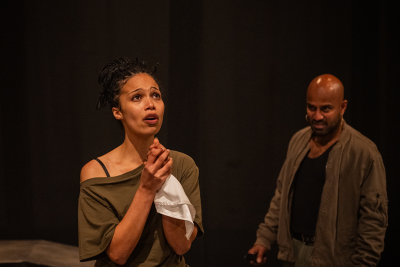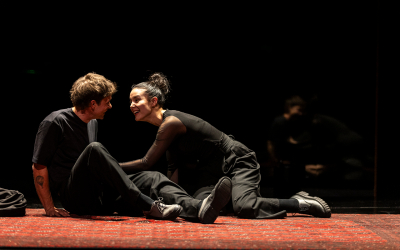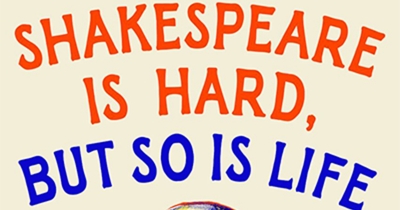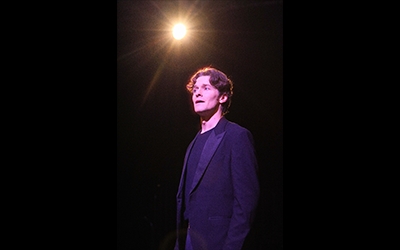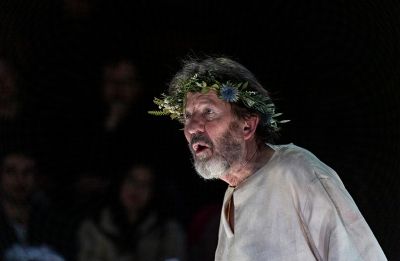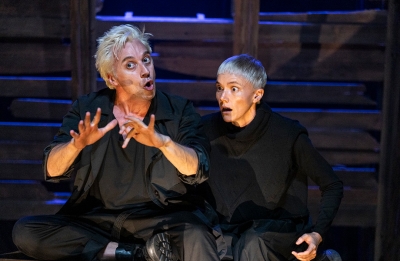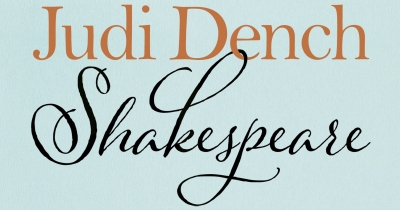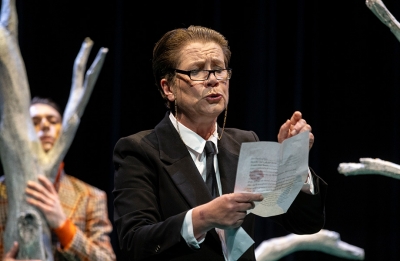William Shakespeare
You can make the case that Othello’s handkerchief is the most consequential prop in all of Shakespeare. Yorick’s skull and Macbeth’s floating dagger are more iconic, but neither is integral to the action of the plays in which they feature. The handkerchief, on the other hand, really is the whole of the tragedy of Othello.
... (read more)What image does Romeo and Juliet conjure for you? How high is your balcony? In Shakespeare’s play, vertical distance is a nod to the Petrarchan courtly love conventions that placed the lady on a pedestal. But, like a lot of conventions, Shakespeare calls up this one only to implode it.
... (read more)In 1588, with England facing the threat of Spanish invasion, Elizabeth I visited her troops assembled at Tilbury to deliver some rousing words: ‘I know I have the body of a weak and feeble woman; but I have the heart and stomach of a king, and of a king of England too.’ This assertion, the idea that the body politic was eternal and existed in a sacred realm beyond historical time, was ideally suited to a moment of national crisis. But rhetorical force notwithstanding, Elizabeth was propounding a fiction. In Shakespeare’s Tragic Art, Rhodri Lewis explores how William Shakespeare was able to use the tragic form to interrogate those ‘fictions of order, stability, and perpetuity’ that humans deploy in their desire to make sense of a random universe. Beginning with Titus Andronicus and ending with Coriolanus, Lewis shows how each play is a response to a particular set of aesthetic challenges. Shakespeare’s motivations lay in exploring the possibilities of the tragic genre. Through plays as various as Romeo and Juliet, Hamlet, and King Lear, he explored ‘never-settled notions’ of what tragedy could achieve.
... (read more)Straight Acting by Will Tosh & The Hollow Crown by Eliot A. Cohen
Shakespeare’s world view – his multiplicity and pluralism, all that teeming vitality crashing up against itself – acts like a tabula rasa even when it is precisely the opposite: one can project oneself onto his work not because it is a blank slate but because it contains multitudes. When it comes to his actual opinions, however – his inclinations and proclivities, his personal, political, and spiritual beliefs – he is notoriously difficult to pin down. One of his greatest skills, after all, is a consummate ability to play both sides of an argument.
... (read more)In the dying days of the ignominious Conservative government that he led from 2019 to 2022, the former UK Prime Minister Boris Johnson compared his fall to that of Shakespeare’s Othello. ‘It is the essence of all tragic literature,’ he claimed, ‘that the hero should be conspicuous, that he should swagger around and that some flaw should lead to a catastrophic reversal and collapse.’ Fintan O’Toole seizes on this self-serving, deluded commentary as an instance of a widespread misconception of Shakespeare’s tragic art and one that can be traced, in part, to the playing fields of Eton.
... (read more)Watching the denouement of Melbourne Shakespeare Company’s Hamlet, I was reminded of David Edgar’s 1980 stage adaptation of Charles Dickens’s The Life and Adventures of Nicholas Nickleby. Ensconced within the travelling theatrical company of Mr Vincent Crummles, Nicholas and his hapless companion Smike are cast in a production of Romeo and Juliet, Smike as the apothecary and Nicholas (of course) as Romeo.
... (read more)Shakespeare: The man who pays the rent by Judi Dench with Brendan O’Hea
In 1957, Michael Benthall, a director at the Old Vic, took a chance on a young woman straight out of drama school, casting her as Ophelia in a production of Hamlet starring John Neville and Coral Browne. I was lucky enough to be in the audience with my mother when Judi Dench, a velvet-voiced cherub in virginal white, made her début. An infinite variety of stage and film performances have gone by since then, but none has erased the memory of her stage presence that night.
... (read more)Shakespeare’s Twelfth Night is a perennial favourite on the Shakespeare calendar (pun intended). The twelfth night of Christmas celebrations was the olden-day version of New Year’s Eve, not because it was the last day of the year but because it was the last day of festivities, with everything returning to normal after the hangover. As such, it was celebrated as a topsy-turvy night where homeowners would play servant to their servants and bring them gifts, with much frivolity and goodwill – a bit like the boss getting pissed at the staff party.
... (read more)

